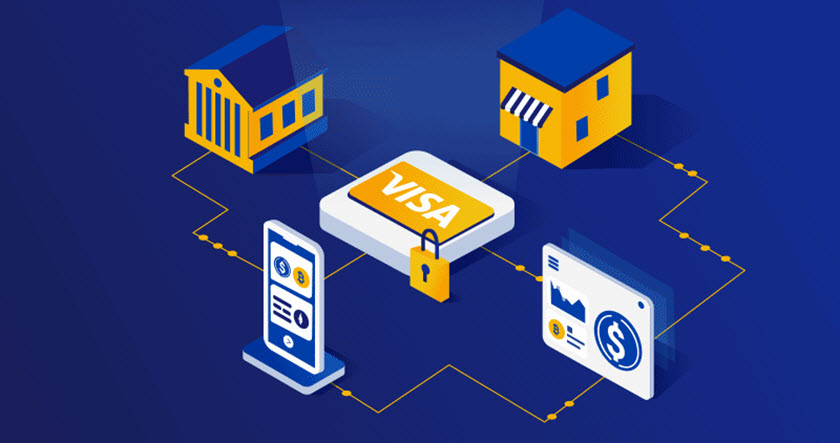Last October, it seemed like there could hardly be any better driver for bitcoin prices than PayPal’s announcement of an ever-so-conditional crypto offering. The mere suggestion that the global service processing payments for 346 million users giving a nod to crypto helped send prices soaring over $30,000, and various factors even brought the top cryptocurrency over $40,000 in January.
PayPal’s issue was the conditionality, however. From the get-go, it looked like users would have limited options in their ability to hold and transfer tokens, as opposed to a more inclusive service rolled out by its rivals.
Now Visa has announced an offering that could very well be the most bullish catalyst in the crypto market this year.
Visa wants to bridge the blockchain-to-bank gap
The largest credit card company in the world has an interesting strategy. It appears Visa’s offices have been busy over the past few years… Visa announced 35 partnerships with cryptocurrency platforms along with the launch of a bank-friendly platform to bridge the gap between legacy digital finance and blockchain. Digital bank First Boulevard is the first to be enrolled in Visa’s program while other banks wait out the beta test period.
What is Visa’s endgame? From the looks of it, a proprietary software that will be given to individual banks and allow them to facilitate crypto transfers more easily. In other words, it seems Visa wants a percentage of every crypto transaction made with one of its cards, and there have been no shortage of these over the past few months. It’s probably no coincidence, as Forbes pointed out, that the digital currency platforms and wallets BitPanda, BlockFi, Crypto.com and Fold have all issued Visa cards.
(Maybe this is another step down the road Visa announced way back in 2019, targeting the 1.7 billion unbanked consumers who make $17 trillion in paper payments annually?)
In any event, to earn those transaction fees and a place at the increasingly-crowded bank-of-blockchain table, Visa will have to create a pretty compelling offer…
So how is Visa’s strategy different?
Visa has a whole lot more of what Paypal has, and what the cryptocurrency world needs: customers. There are about 1.1 billion Visa cards in circulation. In the institutional market, Visa already has partnerships with some 275 banks which issue Visa credit and debit cards.
Although Anchorage made headlines when it became the first truly native digital-asset bank, Visa seems poised to dominate the institutional role because of its existing relationships with banks. Visa partner banks will soon be able to provide a crypto custody solution of their own. Furthermore, given that they’re partnered with the card issuer, it appears that banks will make a full leap into crypto by allowing clients to manage their cryptocurrencies alongside their dollars.
Visa: “crypto is for spending, too”
Visa’s head of crypto Cuy Sheffield drew a familiar comparison by calling Bitcoin “digital gold,” and said cryptocurrencies are “not used as a form of payment in a significant way at this point.”
The tone of Sheffield’s announcement appears to tie into recent stories casting Bitcoin as an alternative inflation hedge. The comparison Sheffield is trying to make? People who buy gold don’t tend to spend it; instead, they intend to hodl their coins and bars long-term.
Visa’s investment in cryptocurrency to date will only become profitable if people use crypto, if they transact with it, buy with bitcoins and sell in stellars. That’s when crypto will come of age and take up its role as a globally-recognized (and globally used!) form of money.
However quickly individual banks adopt Visa’s crypto software over the coming years, that network of 70 million merchants who accept Visa have quite an impact.
Is this upgrade to banking 2.0 we’ve been waiting for?
It might be a little premature to say this is the blockchain upgrade that traditional finance has been waiting for, but given the circumstances, we want to. PayPal’s global reach with millions of users doesn’t really compare with the world of brick-and-mortar payments (compare to Square, which brought PayPal’s ease-of-use to the point-of-sale world).
In contrast, most people associate a Visa card with a bank account – and institutional investors seem to have noticed. Keep a close eye on crypto prices as this story develops.







